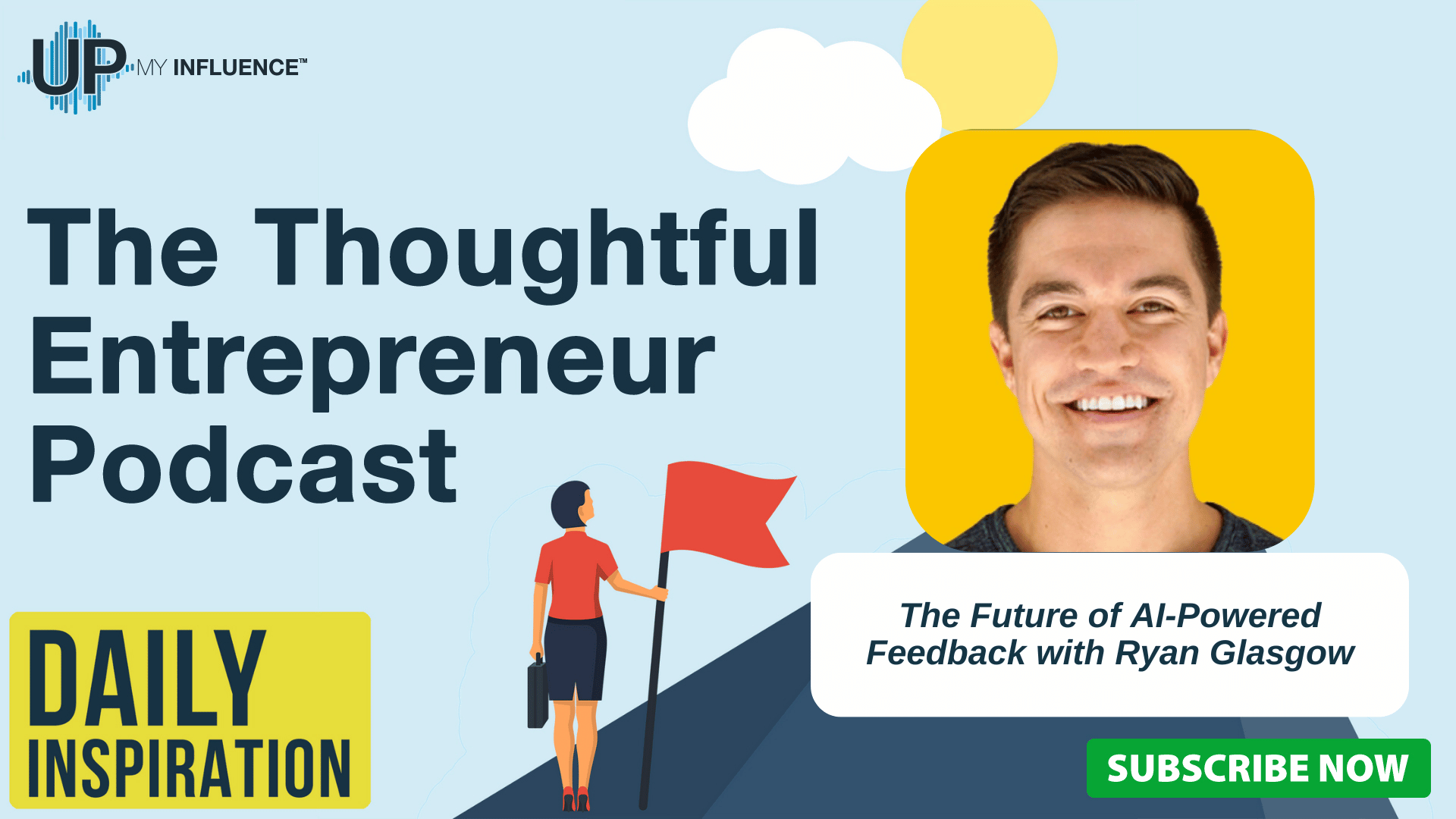THE THOUGHTFUL ENTREPRENEUR PODCAST
In this episode of the Thoughtful Entrepreneur, your host Josh Elledge speaks with the Founder & CEO of Sprig, Ryan Glasgow.

Sprig is a platform that helps businesses gather user feedback through in-product surveys, session replays, and data analysis with artificial intelligence. They've worked with big names like Netflix, Dropbox, Robinhood, Coinbase, and Peloton, ensuring these companies get a representative sample of user experiences.
Ryan shared that Sprig has an impressive response rate of 33% for their surveys. He compared this to platforms like Yelp, where only a small percentage of users leave reviews, but those reviews are generally accurate representations of the overall experience.
Ryan emphasized the importance of understanding user experience. He cited companies that have faced backlash and struggled due to a lack of customer perception.
In his view, companies that don't prioritize understanding their customers may lack empathy and risk falling behind in a competitive and challenging economic environment.
One of the most exciting aspects of Sprig is its implementation of AI for data analysis. Ryan explained that they use advanced AI models to summarize and analyze large amounts of survey data.
This provides meaningful insights and even suggestions for improving the product experience. The potential for conversations with AI entities that understand the data and can help make decisions based on customer feedback is groundbreaking.
Key Points from the Episode:
- Introduction of Ryan Glasgow, founder and CEO of Sprig
- Sprig's services in gathering user feedback for companies like Netflix, Dropbox, Robinhood, Coinbase, and Peloton
- Comparison of Sprig's high response rate for surveys to platforms like Yelp
- Importance of understanding user experience and its impact on companies
- Implementation of AI for data analysis and providing insights and suggestions for product improvement
- Potential applications of Sprig for large enterprise-level companies and early-stage startups
- Vision for the future of Sprig and advancements in AI
- Importance of valuing customer feedback and increasing customer loyalty
- Future of delivering exceptional experiences through targeted surveys
About Ryan Glasgow:
Ryan Glasgow, Founder and CEO of Sprig (formerly UserLeap), is a seasoned figure in the tech industry. His brainchild, Sprig, is a research platform specializing in advanced usability testing and in-product survey capabilities, catering to renowned companies like Dropbox, Loom, and Shift.
An accomplished author, Glasgow penned “The Customer-Obsessed Product Manager's Playbook” and currently hosts the People Driven Products Podcast.
He has a robust product management background and previously held key roles such as group product manager at Weebly, product manager at Vurb, and product designer at Extrabux.
Ryan's contributions to the industry underscore his expertise in enhancing user experience and driving product innovation.
Sprig:
Sprig is a dynamic product insights platform that empowers teams to enhance their products through swift user insights. Its capabilities span from testing new designs and prototypes to optimizing core user flows.
Trusted by prominent companies, including Dropbox, Square, Notion, and Loom, Sprig is pivotal in enabling these teams to construct superior product experiences on a large scale.
Sprig contributes to the evolution of user-centric designs and refining essential user interactions by facilitating rapid and informed decision-making.
Its impact is evident in the tech landscape, where it serves as a valuable resource for organizations committed to staying at the forefront of product innovation and ensuring optimal user satisfaction.
Apply to be a Guest on The Thoughtful Entrepreneur:
https://go.upmyinfluence.com/podcast-guest
Links Mentioned in this Episode:
Want to learn more? Check out Sprig website at
Check out Sprig on LinkedIn at
https://www.linkedin.com/company/sprig-official
Check out Sprig on Twitter at
Check out Ryan Glasgow on LinkedIn at
https://www.linkedin.com/in/ryanglasgow/
Check out Ryan Glasgow on Twitter at
https://twitter.com/ryanglasgow
More from UpMyInfluence:
We are actively booking guests for our The Thoughtful Entrepreneur. Schedule HERE.
Are you a 6-figure consultant? I’ve got high-level intros for you. Learn more here.
What is your #1 Lead Generation BLOCKER? Take my free quiz here.
Want to learn more about all the podcasts managed by UpMyInfluence? Opt in here.

